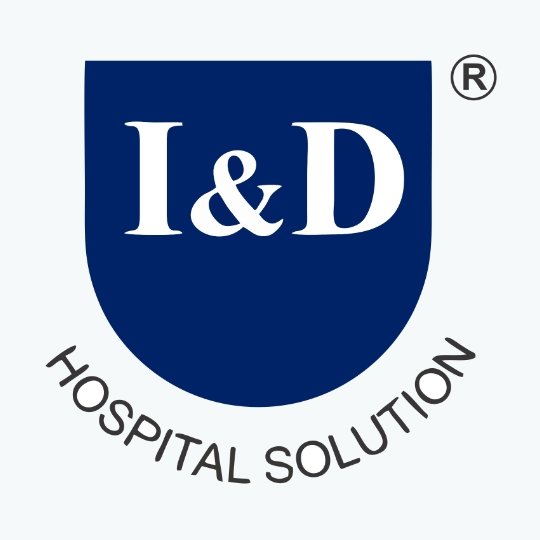The Clinical Establishments Act was passed by the Parliament of India on 17th August 2010, to provide for the registration and regulation of all clinical establishments in the country with a view to prescribing minimum standards of facilities and services which may be provided by them so that mandate of article 47 of the Constitution for improvement in public health may be achieved Hospital Partnership. The Act was notified vide Gazette notification dated 28th February 2012 and initially came into force on 1st March 2012 in the four states namely: Arunachal Pradesh, Himachal Pradesh, Mizoram, Sikkim, and all Union Territories except Delhi. Further, the states of Uttar Pradesh, Rajasthan, Bihar, Jharkhand, Uttarakhand, and Assam adopted the Act under clause (1) of Article 252 of the Constitution. At present, the Act is applicable in aforesaid 10 states and 6 Union Territories
Clinical establishments not covered under the Act are:
Clinical establishments are owned, controlled, or managed by the Armed Forces. Clinical Establishment in the States /UTs mentioned in the schedule of the Act; unless they repeal existing Act and adopt Clinical Establishments Act. Also, Clinical Establishments of those categories and of those recognized systems of medicine for which data has not been appointed by the State Government, which has otherwise adopted the Act
Objectives of the Act
The specific objectives are
i) To establish a digital registry of Clinical Establishments at the National, State, and District levels.
ii) To prevent quackery by unqualified practitioners by introducing a registration system, which is mandatory.
iii) To improve the quality of health care through standardization of healthcare facilities by prescribing minimum standards of facilities and services for all categories of health care establishments (except teaching hospitals,) and ensuring compliance with other conditions of registration like compliance to standard treatment guidelines, stabilization of an emergency medical condition, display of the range of rates to be charged, maintenance of records, etc.
As per NSSO data of the 60th round, the private sector today provides nearly 80% of outpatient care and about 60% of inpatient care. By NSSO estimates, as much as 40% of the private care is likely to be provided by informal unqualified providers. In terms of comparative efficiency, the public sector is value for money as it accounts (based on the NSSO 60th round) for less than 30 % of total expenditure but provides for about 20% of outpatient care and 40% of in-patient care. This same expenditure also pays for 60% of end-of-life care (RGI estimates on hospital mortality), almost 100% of preventive and promotive care, and a substantial part of medical and nursing education as well
In India, out-of-pocket payments still account for a very large share, 59– 71% of total health spending. Most such payments are made to private providers.
Global Scenario of Health Regulation
Accreditation of hospitals began way back in 1910 in the United States of America when the “end result system of hospital standardization” was proposed. This was the stated objective of the American College of Surgeons that developed the first minimum standards for hospitals in the year 1917 in the United Kingdom, Hospital Partnership Health Quality Services (HQS) is accredited by ISQua, and HQS is the oldest health accreditation service in Europe
Accreditation and Regulation of healthcare organizations with minimum standards have been used in many countries as tools for defining the required characteristics of acceptable healthcare services. Hospital Partnership Their voluntary or mandatory nature varies as a function of system objectives. The following definitions are based on technical support experiences in various countries:
Licensure: a government-administered mandatory process that requires healthcare institutions to meet established minimum standards in order to operate.
Certification: a voluntary governmental or non-governmental process that grants recognition to healthcare institutions that meet certain standards and qualifies them to advertise services or to receive payment or funding for services provided.
Accreditation: a process by which a government or non-government agency gives recognition to healthcare institutions that meet certain standards that require continuous improvement in structures, procedures, or outcomes Hospital Partnership. It is usually voluntary, time-limited, and based on periodic assessments by the accrediting body, and may, like certification, be used to achieve other desirable ends such as payment or funding
The Summary of Health Regulations in States/UTs as of March 2017
Group 1 • States in which CEA 2010 has become applicable from the date of notification on 1.3.2012: States of Himachal Pradesh, Mizoram, Arunachal Pradesh & Sikkim because of their prior resolution passed in their assembly accepting the Central Regulation and six Union Territories except Delhi.
Group 2 • States in which CEA 2010 has become applicable by their adoption in their state Assemblies: Assam, Bihar, Jharkhand, Uttar Pradesh, Uttarakhand, Rajasthan.
Group 3 • States/ UTs which have their own Act listed in the schedule to CE Act and exempted from CE Act. They may repeal their own Act before adopting the CEA 2010: West Bengal, Maharashtra, Andhra Pradesh (erstwhile), Odisha, Delhi, Manipur, Nagaland, Madhya Pradesh, and Punjab (not operationalized)
Group 4 • Other States which had enacted their own Acts: Chattisgarh, Haryana, Jammu and Kashmir, Meghalaya, Tamil Nadu, and Tripura. (Only Chattisgarh and Tripura have implemented the Act).
Group 5 • The remaining States which have not adopted CEA 2010 nor have their own Act, but are in the process of enacting legislation: Gujarat, Kerala, and Goal



